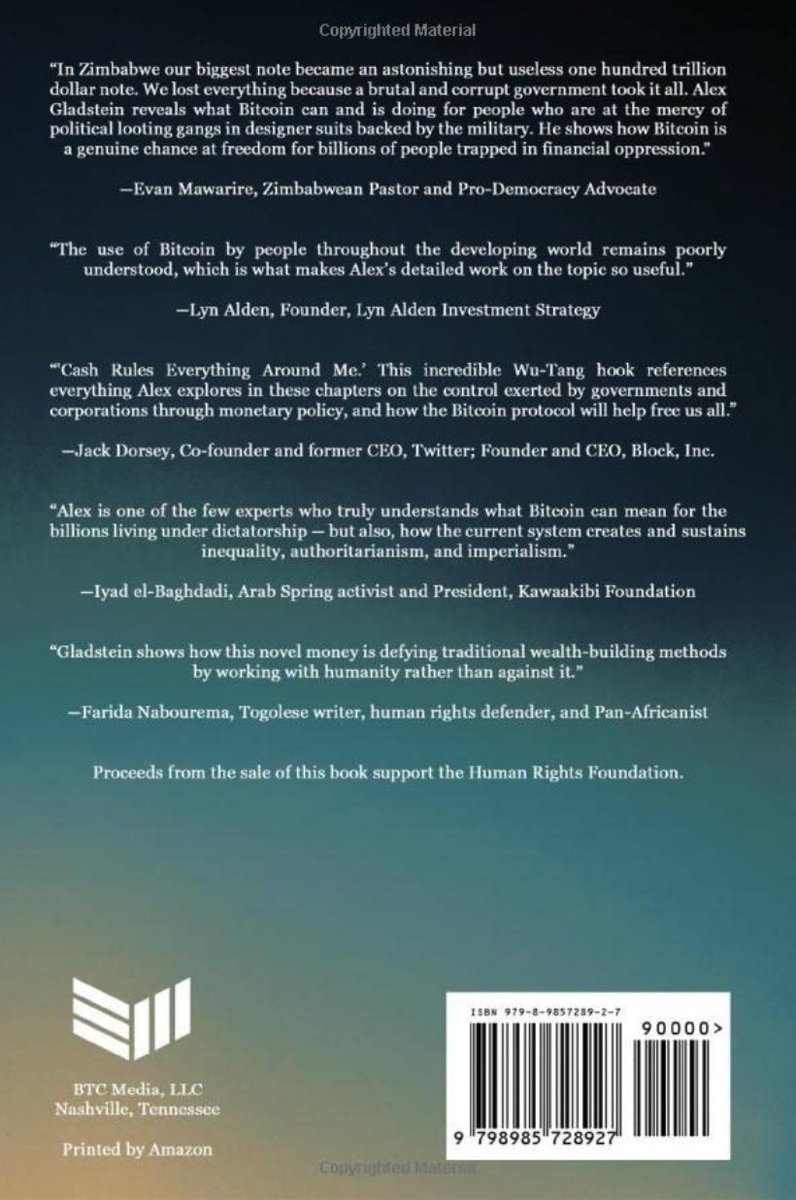
Could ZK-rollups one day help Bitcoin with scaling or privacy?
@HRF and @StarkWareLtd are pleased to announce a research fellowship to help answer this question.
The fellow will receive a 1 BTC grant to produce an industry paper.
Apply today!
HRF.org/Zkrollups
@HRF and @StarkWareLtd are pleased to announce a research fellowship to help answer this question.
The fellow will receive a 1 BTC grant to produce an industry paper.
Apply today!
HRF.org/Zkrollups
ZK-rollups are a smart contract tech that offload computationally-intensive work from a main blockchain to a segregated layer.
Although somewhat nascent, there are multiple instances of working ZK-rollup solutions deployed in production today, primarily on the Ethereum network.
Although somewhat nascent, there are multiple instances of working ZK-rollup solutions deployed in production today, primarily on the Ethereum network.
This is a 4-month research fellowship to explore the potential of ZK-rollups for the Bitcoin network.
The product of this fellowship will be an industry paper that addresses the following six research questions:
The product of this fellowship will be an industry paper that addresses the following six research questions:
1) Can ZK-rollups help improve Bitcoin scalability?
2) What would ZK-rollup-based Bitcoin apps look like?
3) Are there any ways in which ZK-rollups could help upgrade or complement the Lightning Network — or would they be an entirely different structure?
2) What would ZK-rollup-based Bitcoin apps look like?
3) Are there any ways in which ZK-rollups could help upgrade or complement the Lightning Network — or would they be an entirely different structure?
4) How would Bitcoin Core need to change to integrate ZK-rollups? Are there any known current improvement proposals (e.g. OP_CTV) that would help?
5) What would be the main downsides and risks of bringing ZK-rollups to Bitcoin?
5) What would be the main downsides and risks of bringing ZK-rollups to Bitcoin?
6) Are there ways to combine ZK-rollup scalability benefits with privacy benefits on Bitcoin?
If so, to which extent and at what cost?
If so, to which extent and at what cost?
The fellowship is being created with the acknowledgment that ZK-rollups may not be a helpful or appropriate addition to Bitcoin, but with the open mind that they might be.
The fellow will receive 1 BTC to support their efforts during the research and writing period.
This gift is made possible partly from StarkWare, and partly on the HRF side from a recent donation made by @cmsholdings at the suggestion of @udiWertheimer
This gift is made possible partly from StarkWare, and partly on the HRF side from a recent donation made by @cmsholdings at the suggestion of @udiWertheimer
Applications can be sent to zkonbtc (at) hrf.org
Please include relevant information about your industry or academic background, a research plan in terms of who you will speak to, and your current sense of the impact ZK-rollups could have for Bitcoin.
Please include relevant information about your industry or academic background, a research plan in terms of who you will speak to, and your current sense of the impact ZK-rollups could have for Bitcoin.
We look forward to updating you once the fellow has been selected, and especially to updating you with the publication of the research paper later this year.
Onwards!
Onwards!
• • •
Missing some Tweet in this thread? You can try to
force a refresh








